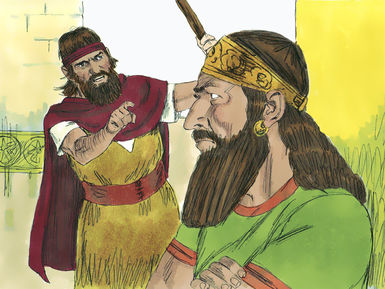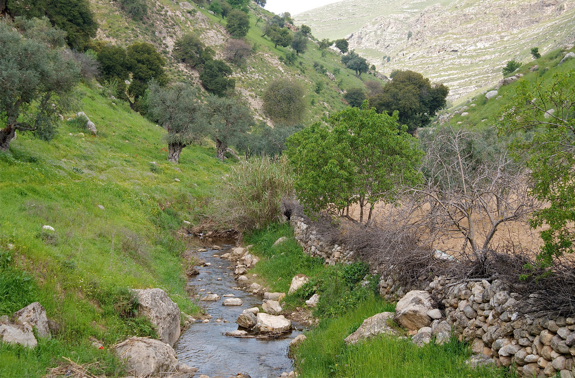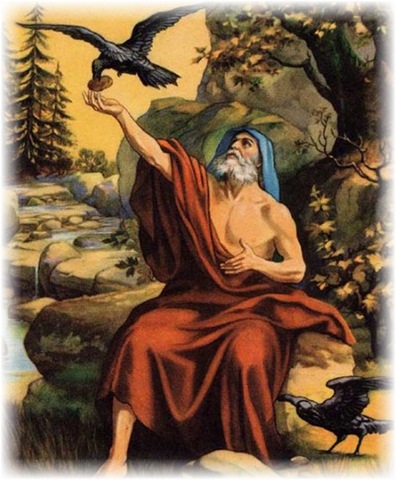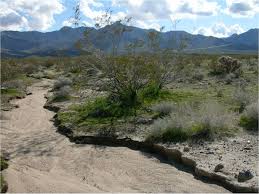The Brook Cherith (pronounced ke’rith) is a highly significant location in the Bible. Why? What is the Brook Cherith about? It is the intention of this article to answer these questions.
What is the Brook Cherith?
A brook is a natural freshwater stream; it is smaller than a river. The Brook Cherith was located in western Jodan in the Jordan Valley and flowed into the Jordan River. Cherith means cutting or separation, which probably refers to the geological nature of the stream. It has been described as one of the wildest ravines of this rugged region.
What is the Brook Cherith About?
So, what is the Brook Cherith about? What is its significance? The location of the Brook of Cherith is where one of the most significant of biblical events occurred.
Enter Elijah
Known as Elijah the Tishbite, Elijah was born around 900 BCE in the village of Tishbe in Gilead in ancient Palestine. Not much is known concerning his birthplace other than it is likely the ancient city of Listib, which is present-day Jordan. He was the son of Savah, but nothing is recorded about his background.
However, Elijah was indeed a prophet and is portrayed as having lived during the reigns of Israelite Kings Ahab, Ahaziah, and Jehoram, during the first half of the 9th century BC. He was known as the prophet of confrontation. In the Scriptures, Elijah appears suddenly to promote traditional orthodox Jewish beliefs. His first appearance places him about midway through the reign of King Ahab, son of Omri, who founded the northern kingdom of Samaria. This period would place Elijah somewhere around 864 BC.
Elijah was a dynamic prophet during a tumultuous time in Israel’s history. The nation had betrayed the Lord by worshipping Baal, and King Ahab had allied with Sidon by marrying their princess, Jezebel. Elijah was sent to show Israel the evil of their ways and encourage them to return to the Lord.
This mission is described in the Scriptures in 1 Kings 17:1
17 And Elijah the Tishbite, of the inhabitants of Gilead, said to Ahab, “As the Lord God of Israel lives, before whom I stand, there shall not be dew nor rain these years, except at my word.” NKJV

The entrance of Elijah in the Scriptures is abrupt, bold, and dramatic. Like a bolt of lightning from heaven, Elijah suddenly appears on the scene. He confronts King Ahab, the wicked king of Israel, about the future weather conditions. Conversing about the weather is a typical conversation with people. But there was nothing typical about the weather talk of Elijah before Ahab, which we see in our text. An uncompromising Elijah stated that it was judgment time for Israel. He declared that a severe drought was coming to the land and would remain until he decided to stop it. No rain, no dew, no moisture, nothing. Only the burning, searing, wilting sun day after day until Elijah called a halt to the torment.
The Brook
It was a bold and severe prediction about the weather that did not go well with Ahab. Imagine declaring judgment before a wicked king! He stood the chance of being beheaded. Therefore, he wasted no time leaving the presence of King Ahab, as we see in verses 2 and 3
2 Then the word of the Lord came to him, saying,
3 “Get away from here and turn eastward, and hide by the Brook Cherith, which flows into the Jordan. NKJV

Evidently, while Ahab was in a state of shock and unbelief from the appearance and pronouncement by the rugged and brazen prophet, Elijah abruptly walked out before he could be arrested. Immediately or soon after, the Lord instructed Elijah to flee and hide from the king in the event Ahab sought retaliation or revenge, especially after the drought commenced. Furthermore, the prophet needed to be out of Ahab’s reach, for the king would undoubtedly place undue pressure upon Elijah to stop the drought.
Next, we see that Scripture dramatically describes how God protected and provided for His beloved prophet. Verses: 4-6 reads:
4 And it shall be, that thou shalt drink of the brook; and I have commanded the ravens to feed thee there.
5 So he went and did according unto the word of the LORD: for he went and dwelt by the brook Cherith, that is before Jordan.
6 And the ravens brought him bread and flesh in the morning, and bread and flesh in the evening; and he drank of the brook.

Here we see the provision of the Lord—supernatural provision. Imagine birds delivering food!
Elijah was obedient to God, and God provided for His beloved servant in the wilderness. Elijah witnessed God’s power as the ravens brought him bread and meat twice daily, morning and evening. And he drank fresh water from the flowing brook.
Despite being totally alone and being hunted down by the king, Elijah’s needs were met by the Lord Himself. God’s dear servant was being protected and provided for day by day.
Although protected and provided for during the drought, imagine being all alone, unable to go anywhere, with nowhere to turn. Research yields that Elijah was sustained at the brook for about three years. Now, isolated from society and deprived of luxuries, he couldn’t go out to eat or even to the store. What do you suppose he did for three years?
He had no TV, radio, cell phone, or tablet; he couldn’t go and visit with friends. He had to wait—by the brook.
Have you ever been in a major life situation when you couldn’t do anything about it? A time when you have done all that you could have done, all you could do was wait? We’ve all been faced with a situation such as this. I call them brookside experiences.
These situations can involve life-changing and life-sustaining conditions, including career and spouse choices, where to live, and financial decisions, to name a few. It can be any situation in which we cannot solve ourselves. When we seek an answer through prayer, and we don’t receive it, we have to wait—by the brook.
The brook is where God places us sometimes for reasons that only He, in His wisdom, knows. It can be for timing. Perhaps the time may not be suitable for what we are seeking.
A time for preparation: Perhaps we aren’t prepared for what we are seeking, or what we are seeking isn’t ready for us.
A time of reflection: Perhaps what we seek isn’t suitable for us at all, and during this time, God can minister to us so that we will realize how unsuitable it really is.
A time of opportunity: Perhaps, God places us in this situation to bond with us. This time can be an opportunity to get closer to Him. Even if for one of the reasons above, it can be an opening to get closer to God.
God provided for Elijah’s nutritional needs in a most supernatural way; birds bought him “bread and flesh.”
We can be assured that Elijah, being the servant of God he was, used this time to solidify his relationship with his Lord.
Sometimes, as with Elijah, the brook is the only solution. He could have been captured and killed had he not obeyed the Lord. But aside from safety, there can be much gained from a brookside experience.
However, brookside experiences can be daunting. Verse 7 reads:
And it came to pass after a while, that the brook dried up, because there had been no rain in the land.

Brookside experiences are temporary to varying degrees, and the temporary provision can begin to wane. This temporary provision can be unemployment insurance, temporary housing, a temp job, or even counseling that pulled us through the experience. Nevertheless, these things come to an end.
In Elijah’s case, his provision, the brook—dried up. What on earth was he to do with no water?
Verses 8-9 tell us:
8 And the word of the LORD came unto him, saying,
9 Arise, get thee to Zarephath, which belongeth to Zidon, and dwell there: behold, I have commanded a widow woman there to sustain thee.
God is faithful!
While experiencing a brookside experience, we may feel that we are all alone. However, we are never alone; the Lord steps in just when the brook dries up. In Elijah’s case, the ordeal wasn’t over, but God made further provision for him; a widow would sustain him.
In this passage, we see that when one door closes, the Lord opens another one. God has promised, “for he hath said, I will never leave thee, nor forsake thee.” This promise is why, as difficult as it may be, we must maintain our faith during our brookside experiences. God provided for Elijah supernaturally; can He not do it for us?
Rom 1:17 reads, “For therein is the righteousness of God revealed from faith to faith: as it is written, The just shall live by faith.” Faith and unconditional trust is the chosen way of receiving God’s righteousness and blessings. Because of God’s faithfulness to his promises, they move on in our response to faith. It is a perpetual progression throughout life. “the just shall live by faith.” Therefore, it is by faith, “faith to faith,” in other words, from first to last—from the beginning to the end. We need faith in Jesus at the beginning of our journey with the Lord, but we need the faith of
Jesus, the faith He had to endure the cross, to carry us through—to make it through our brookside experiences.
An observation of current events will yield to us that an extensive brookside experience is coming our way, a situation that we will be able to do nothing about—but wait and pray for the return of the Lord.
We need the faith of Jesus to carry us through life and into the presence of the Lord. Rev 14:12 says, “Here is the patience of the saints: here are they that keep the commandments of God, and the faith of Jesus.”
Amen
